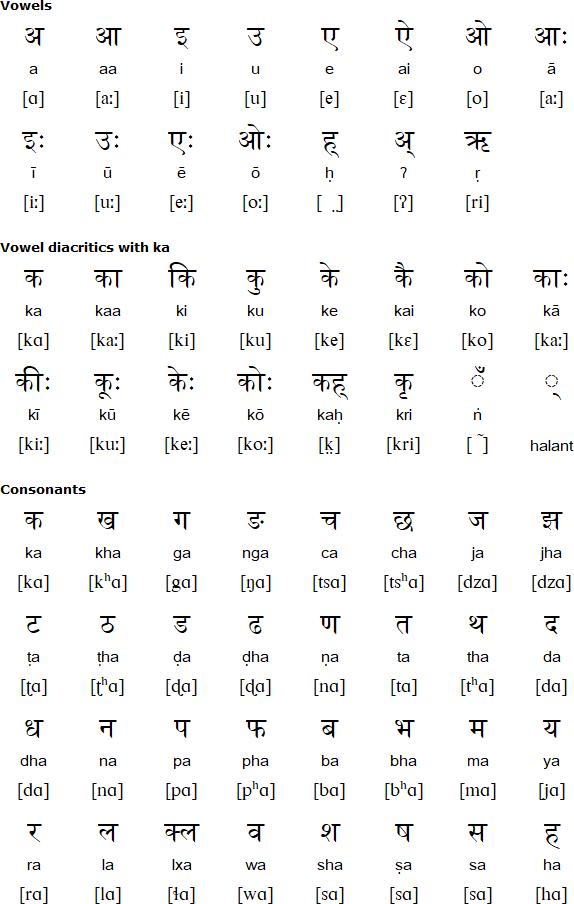Gurung is member of the Tamangic branch of the Sino-Tibetan language family. It is spoken in parts of southern and central Nepal, particularly in the Parbat district of the Dhawalagiri Zone, and in the Gorkha, Kaski, Lamjung, Tanahu and Syangja districts of the Gandaki Zone. In 2011 there were about 326,000 speakers of Gurung in Nepal. In 2007 there were about 33,000 speakers of Gurung in northeastern India, mainly in the South district of Sikkim state, and in the Darjeeling district of West Bengal state.
Gurung is also known as Daduwa or Western Gurung. The native name is Tamu Kyi, which means 'language of the Tamu'. The people who speak it call themselves Tamu, and others call them Gurung.
There are different varities of the language in each village where its spoken. These varities are grouped into two groups East Gurung and West Gurung. While varities within each group are more or less mutually intelligible, there is less intelligibilty between the two groups. Gurung is closely related to Tamang, Thakali, Manange, Nar Phu, and Chantyal, which are all Tamangic languages.
Gurung is spoken mainly by adults, while younger people are more likely to speak Nepali. Gurung is used in homes, markets, villages, literature, the media, and in religious contexts. It became one of the official languages of Sikkim in 1997.
There are ways to write Gurung with the Devangari, Latin and Tibetan alphabets, and two scripts invented by Gurung speakers: Khe Prih and Khema. The Khema script is the official script for Gurung, according to the Nepal Language Commission. The Khe Prih script is also quite widely used, as is Devanagari.

Download an alphabet chart for Gurung (Excel)
Details provided by Biswajit Mandal (biswajitmandal[dot]bm90[at]gmail[dot]com)
Information about the Gurung language
https://en.wikipedia.org/wiki/Gurung_language
https://www.ethnologue.com/language/gvr
https://elalliance.org/languages/himalaya/gurung/
https://kathmandupost.com/art-culture/2019/09/06/the-gurung-language-once-had-no-written-script-now-it-has-five
Chhantyal, Gurung, Tamang, Thakali
Aka-Jeru, Angika, Athpare, Avestan, Awadhi, Bahing, Balti, Bantawa, Belhare, Bhili, Bhumij, Bilaspuri, Bodo, Bhojpuri, Braj, Car, Chamling, Chhantyal, Chhattisgarhi, Chambeali, Danwar, Dhatki, Dhimal, Dhundari, Digaro Mishmi, Dogri, Doteli, Gaddi, Garhwali, Gondi, Gurung, Halbi, Haryanvi, Hill Miri, Hindi, Ho, Jarawa, Jaunsari, Jirel, Jumli, Kagate, Kannauji, Kham, Kangri, Kashmiri, Khaling, Khandeshi, Kharia, Khortha, Korku, Konkani, Kullui, Kumaoni, Kurmali, Kurukh, Kusunda, Lambadi, Limbu, Lhomi, Lhowa, Magahi, Magar, Mahasu Pahari, Maithili, Maldivian, Malto, Mandeali, Marathi, Marwari, Mewari, Mundari, Nancowry. Newar, Nepali, Nimadi, Nishi, Onge, Pahari, Pali, Pangwali, Rajasthani, Rajbanshi, Rangpuri, Sadri, Sanskrit, Santali, Saraiki, Sirmauri, Sherpa, Shina, Sindhi, Sunwar, Sylheti, Tamang, Thakali, Thangmi, Wambule, Wancho, Yakkha, Yolmo
Page last modified: 31.01.24
[top]
You can support this site by Buying Me A Coffee, and if you like what you see on this page, you can use the buttons below to share it with people you know.

If you like this site and find it useful, you can support it by making a donation via PayPal or Patreon, or by contributing in other ways. Omniglot is how I make my living.
Note: all links on this site to Amazon.com, Amazon.co.uk
and Amazon.fr
are affiliate links. This means I earn a commission if you click on any of them and buy something. So by clicking on these links you can help to support this site.
[top]